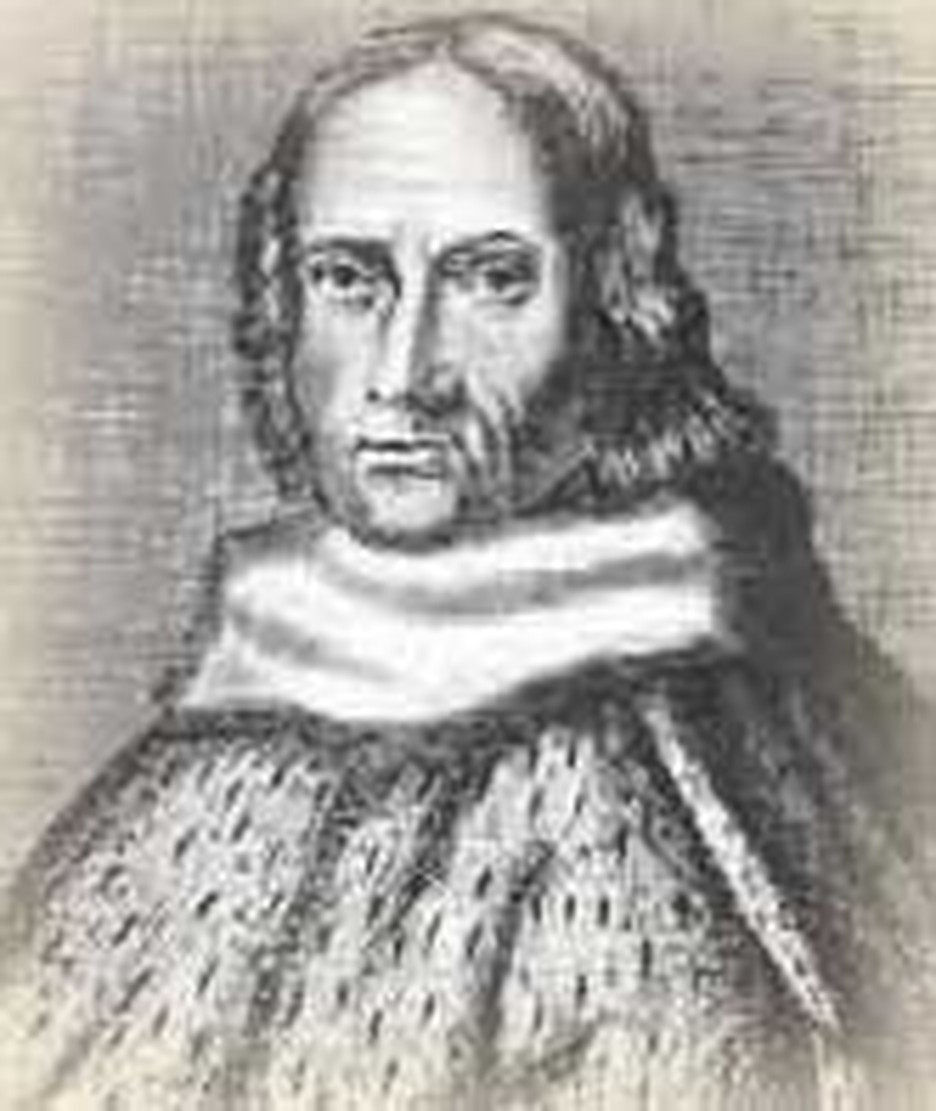
As chancellor of the University of Paris, John Charlier of Gerson was one of the most influential French churchmen at the end of the fourteenth and beginning of the fifteenth centuries. Like two other contemporaries named John--John Wycliffe and John Hus, he called for reform of the church. Unlike them, he was unwilling to overthrow venerable establishments. Still, he wrote many things which sixteenth century reformers quoted.
John was born on this day, December 14, 1363 in the French farming town of Gerson. His parents were pious people and their faith took hold in each of the children. As the oldest son, John acted as a spiritual advisor to the others. His sisters eventually devoted themselves to virginity and made a virtual nunnery out of the home, practicing good works from it.
At the time of John's birth, France's 100 Years' War with England was drawing to a close. (John would write in defense of Joan of Arc against charges of sorcery and wearing a man's clothes.) France was in a mess because of the war and occupation. The church were in a mess because there were rival popes, each backed by different nations. Throughout the world, the church was corrupt. In too many instances, the common people had better morals than the clergy. Groups who opposed Roman Catholicism were on the rise. In these trying times, John's motto was "Do penance and believe the gospel."
John challenged the top guns of the nation and church, too, pointing out that their corruption was the cause of the woes of France. Although he had been sponsored by the Duke of Burgundy, he nonetheless called for the duke's punishment after he arranged the assassination of the Duke of Orleans. John sought official condemnation of a brand of theology which permitted murder of tyrants. Ironically, Burgundy, who defended the theology, was himself later assassinated.
From the start, John realized the importance of training the young if there was to be real reform of the church. His ideal was to train them to have faith in their hearts rather than just knowledge in the head. He favored a mystical approach, pointing out that even young children and idiots with an inner knowledge of God can lead Christian lives whereas many intellectuals fail. And faith should be Christ-centered. In their studies, the universities should emphasize those books which dealt with Christ more than those that dealt with the nature and being of God. As for the people, they should gaze upon the life of Christ, "whose every act is for our instruction."
Seeking to end the split in the church, John pleaded with both popes to step down. When they wouldn't, he decided it was better to break church law temporarily, by taking some steps without the pope's approval, than to allow the church to stay broken. He preached a stirring sermon which helped hold the Council of Constance together when it was about to collapse. Eventually, the council ended the split by declaring it had authority over popes, locking up Pope John XXIII and electing a new one. However, that same council burned John Hus at the stake. John Gerson was a leader in condemning Hus.
Considering how much he had in common with Hus, how could this be? Although John Gerson gave Scripture an important place, he insisted that only the church could interpret what the Bible really means. Generally this was done through the universities--especially his own University of Paris. Gerson said that for Hus to teach independently as he did undermined religious and political authority. Hus must die.
Because he had spoken out against the Duke of Burgundy, John had to live in exile for two years. After the Duke's death, he returned to France, but kept out of the way of the Duke's followers by living in Lyons. There he taught children and wrote devotional books.
Bibliography:
- Connolly, James L. John Gerson, Reformer and Mystic. London: B. Herder Book Co., 1928.
- Foutz, Scott David. "On the Life and Mystical Theology of Jean Gerson (1336-1429)." https://www.quodlibet.net/gerson.shtml
- Various encyclopedia and internet articles.
Last updated July, 2007.



